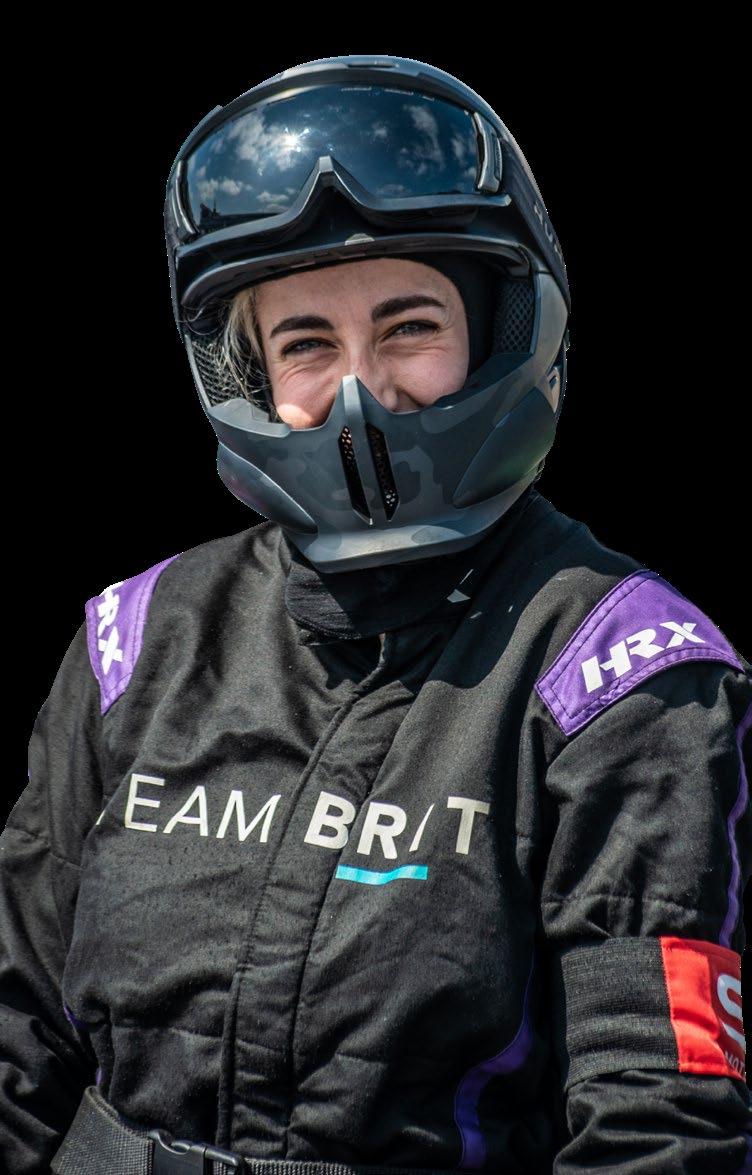
4 minute read
FIVE QUESTIONS WITH RAQUEL ESTEBAN
FIVE QUESTIONS
with Team BRIT mechanic Raquel Esteban
Which person, or experience in life, gave you your first taste for motorsport?
In the early stages of my life, I’d say a combination of both my grandads and my dad. One of them was a carpenter and the other one was a mechanic, so there were always tools around and things to play with and touch in that sense. So I guess that awakened something inside of me to choose engineering over other careers, but I think the real deal arrived when I actually started university. That is where I met people and started going to the local track to events and races (classics most of the time), joined the university Formula Student team and I realised it was something that I wanted to pursue professionally.
How long have you been part of Team BRIT, and what made you want to get involved?
I’ve been part of the team for almost two years now. When I moved to the UK, I started working at a damper’s manufacturing workshop, and one of my colleagues was friends with Al. When he told me about the team, its hand control technology, and that they might be interested in getting some help for some race weekends I immediately said yes, because it seemed like the perfect first step into the motorsport industry. It certainly was, because it ended up turning into a fulltime job and I couldn’t be more grateful.
We’re very proud of our pioneering technology with hand controls, but what other considerations of the cars’ set up are required for people with disabilities?
I’d say one of the main challenges is the ease of access for the driver to get in and out of the car. We’ve seen this season how critical it is for the pitstop , for us to safely and quickly get a driver in a wheelchair in and out of the car. It brings a lot more challenges than an able-bodied driver because there’s more to get in the way of the rest of the crew involved in that pitstop. It’s very important to have it practiced and get it right every single time to avoid disadvantages.
Sometimes placement of the hand control systems can be a tricky due to space restraints, the additional equipment that the system carries needs to be strategically placed so it’s easy to remove in case of issues, and so it doesn’t block the access to any other components of the car, which is never easy.
Some other important things to consider are button placements. For example, if one of the drivers has a paralysis in the left-hand side of their bodies, placing the radio button on the left hand side of the steering wheel will require them to let go of the wheel to reply to the engineer’s message, and that can lead to an accident on track.
We’re competing across very different championships – what are some of the key differences from a purely practical point of view?
The regulations for each championship are very different from one another. But from our point of view, the equipment we bring to each round is similar for all the cars and our garage setting up gear (boards, toolboxes, etc) is always the same for every championship.

British GT regs are a lot stricter than other championships because it’s a higher level of racing but slowly other UK championships are picking up on certain things to match those regs.
I’d say the main difference from British GT to the other championships is the crew equipment and the fact that we need to be wearing fireproofs AND helmets every time we leave the garage to the pitlane. We also need to use tyre ovens to heat up tyres before any session. The McLaren has centre nuts, which means that for those rounds we need F1-style guns and pit equipment.
What’s the best piece of advice you’ve ever been given?
When I was doing my exams to access uni back in Spain, and I didn’t get in the degree I wanted in the first place, it was very disappointing. However, my parents said that maybe it was not my “destiny” to follow that degree and that the one I chose was probably what I was meant to do in life. I can’t say that’s advice per se, and at that point it really didn’t feel like they were right, but I guess where I am now is proof enough that they were.
I’ve been lucky enough to have a family that since being a kid, has always encouraged me and my sister to be whatever we want to be and support whichever decision we’ve made, let us be right and wrong and learn from it ourselves. I think that is far more important than any advice someone can give.







